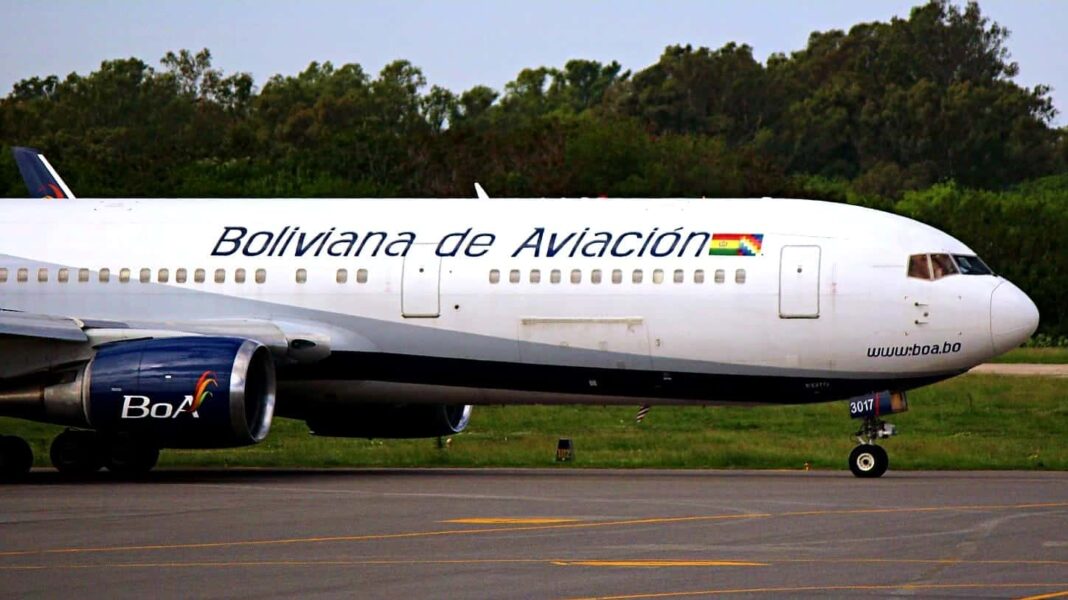The Latin American and Caribbean Air Transport Association and ALA Bolivia warn that YPFB Aviación’s new payment measures could devastate Bolivia’s aviation sector.
The aviation sector in Bolivia is currently facing an unprecedented crisis, exacerbated by the recent measures imposed by YPFB Aviación, a crucial strategic supplier for air operations in the country. The Latin American and Caribbean Air Transport Association (ALTA) and the Bolivian Airlines Association (ALA Bolivia) have issued urgent warnings regarding the impact these measures are having on the sustainability of air transport in Bolivia.
These new regulations, which require airlines to make 50% of their payments in Bolivian Bolivianos (BOB) and 50% in U.S. dollars (USD), along with cash payments and the return of previously made advances, have sent shockwaves throughout the industry. As Bolivia grapples with limited foreign currency availability, these actions threaten to disrupt the entire aviation ecosystem, which is vital for the country’s economic stability and international connectivity.
A Year of Strain on Bolivia’s Aviation Sector
Over the past year, Bolivia’s airlines have struggled to adapt to the country’s limited foreign currency reserves, which have significantly impacted their ability to conduct international transactions. As a landlocked country, Bolivia relies heavily on air transport to facilitate both tourism and trade. The airlines have had to absorb escalating costs associated with international remittances, which have, in some cases, surpassed 30%. In response, the aviation sector implemented a series of strategies to mitigate these financial pressures.
However, the latest measures imposed by YPFB Aviación—requiring payments in both Bolivian and U.S. currencies, along with demands for cash payments—have further strained an already fragile situation. The introduction of these additional conditions has left many airlines unable to meet the increasingly complex and costly demands, putting the entire air transport network at risk.
The Economic and Social Impact of Bolivia’s Air Transport Crisis
Bolivia’s aviation industry is not just important for connectivity but also plays a crucial role in the national economy. In 2023, air transport accounted for a significant portion of the country’s revenue, with 70% of international tourists arriving by air. This contributed to an estimated USD 2.5 billion in earnings, representing 5.2% of Bolivia’s GDP. The aviation sector also supports more than 304,000 jobs, highlighting its importance as a major economic pillar.
Beyond tourism, Bolivia’s air transport system is essential for international trade, with nearly 50% of the country’s air cargo being carried in passenger aircraft. This high-value export capacity is critical for Bolivia’s trade relationships, especially for products like minerals, agricultural goods, and other valuable exports.
Despite the central role aviation plays in the economy, Bolivia’s international connectivity remains below its potential, with the country’s air transport infrastructure operating at a capacity 21% lower than that of other Latin American nations. This connectivity gap severely limits the country’s ability to integrate into global markets and capitalize on opportunities in international trade.
A Threat to Bolivia’s Connectivity and Global Trade
The new measures imposed by YPFB Aviación not only jeopardize the financial health of the aviation sector but also threaten the nation’s connectivity with the rest of the world. If airlines are unable to adapt to these increasingly stringent conditions, some may be forced to suspend operations in Bolivia. Such a scenario would have catastrophic consequences for the country’s ability to maintain vital air links with its regional and international partners.
The aviation sector is integral to Bolivia’s trade agreements, particularly in the export of high-value products that rely on air cargo. A disruption in air transport could lead to delays in shipments, higher costs, and reduced market access for Bolivian exporters. Moreover, the suspension of international flights would negatively affect tourism, a key driver of economic activity.
Airlines Consider Suspending Operations in Bolivia
In light of these challenges, many airlines operating in Bolivia are already contemplating suspending their services. The financial strain caused by the requirement for both local and foreign currency payments, coupled with the cash-only demand, is simply unsustainable for many operators. The return of previously made advances further exacerbates the issue, as airlines are forced to manage their finances with limited access to foreign currency.
Should airlines decide to suspend operations, the effects would be far-reaching. Bolivia’s connectivity with key international markets would be severely curtailed, and the country would lose its competitive edge in attracting international tourists and conducting global trade. This would also reduce job opportunities in the aviation sector and related industries, deepening the socio-economic crisis.
ALTA and ALA Bolivia’s Rejection of YPFB Aviación’s Measures
Both ALTA and ALA Bolivia have strongly opposed the measures introduced by YPFB Aviación, arguing that they are not only economically unfeasible but also counterproductive for the long-term development of Bolivia’s aviation sector. ALTA, as a representative of over 30 airlines operating in Latin America and the Caribbean, has expressed its concern about the broader impact of such policies on the region’s aviation industry.
ALA Bolivia, which represents the interests of local airlines, has echoed these concerns, warning that the new measures could lead to a significant decline in Bolivia’s aviation services. The association is calling for urgent dialogue between the government, YPFB Aviación, and the airline industry to find a sustainable solution to the crisis.
The Role of Government and YPFB Aviación in Addressing the Crisis
The Bolivian government, through YPFB Aviación, has a critical role to play in resolving the current situation. The government must balance its fiscal policies with the need to support the aviation sector, ensuring that airlines can continue to operate efficiently while contributing to the national economy.
YPFB Aviación, as the main supplier of aviation fuel in Bolivia, has considerable leverage in the country’s aviation landscape. However, the implementation of policies that place additional financial burdens on airlines during an already challenging time could undermine the industry’s long-term viability. The Bolivian government must work to find ways to stabilize the foreign currency market, ensure liquidity for airlines, and introduce policies that support both the short- and long-term sustainability of the aviation sector.
Looking Ahead: The Future of Bolivia’s Aviation Industry
The aviation industry in Bolivia stands at a critical juncture. The actions of YPFB Aviación have introduced significant risks, but they also present an opportunity for all stakeholders to reassess the state of the sector and engage in constructive dialogue. Finding a solution to the foreign currency issue, addressing payment conditions, and ensuring the economic sustainability of airlines should be top priorities for both the government and industry leaders.
Bolivia’s economic recovery depends, in part, on the resilience of its aviation sector. The country’s ability to foster international trade, attract tourists, and provide essential connectivity hinges on the health of its air transport network. It is imperative that Bolivia acts swiftly to resolve the current crisis and pave the way for a more sustainable and prosperous aviation future.
As the country faces this critical moment, it is clear that the aviation sector cannot afford to be sidelined. The decisions made in the coming months will shape Bolivia’s economic landscape for years to come, making it essential for all parties involved to work together to find solutions that benefit both the aviation industry and the broader Bolivian economy. (https://www.travelandtourworld.com/news/article/the-latin-american-and-caribbean-air-transport-association-and-the-bolivian-airlines-association-sound-the-alarm-over-catastrophic-consequences-of-yacimientos-petroliferos-fiscales-bolivianos-aviacion/



































